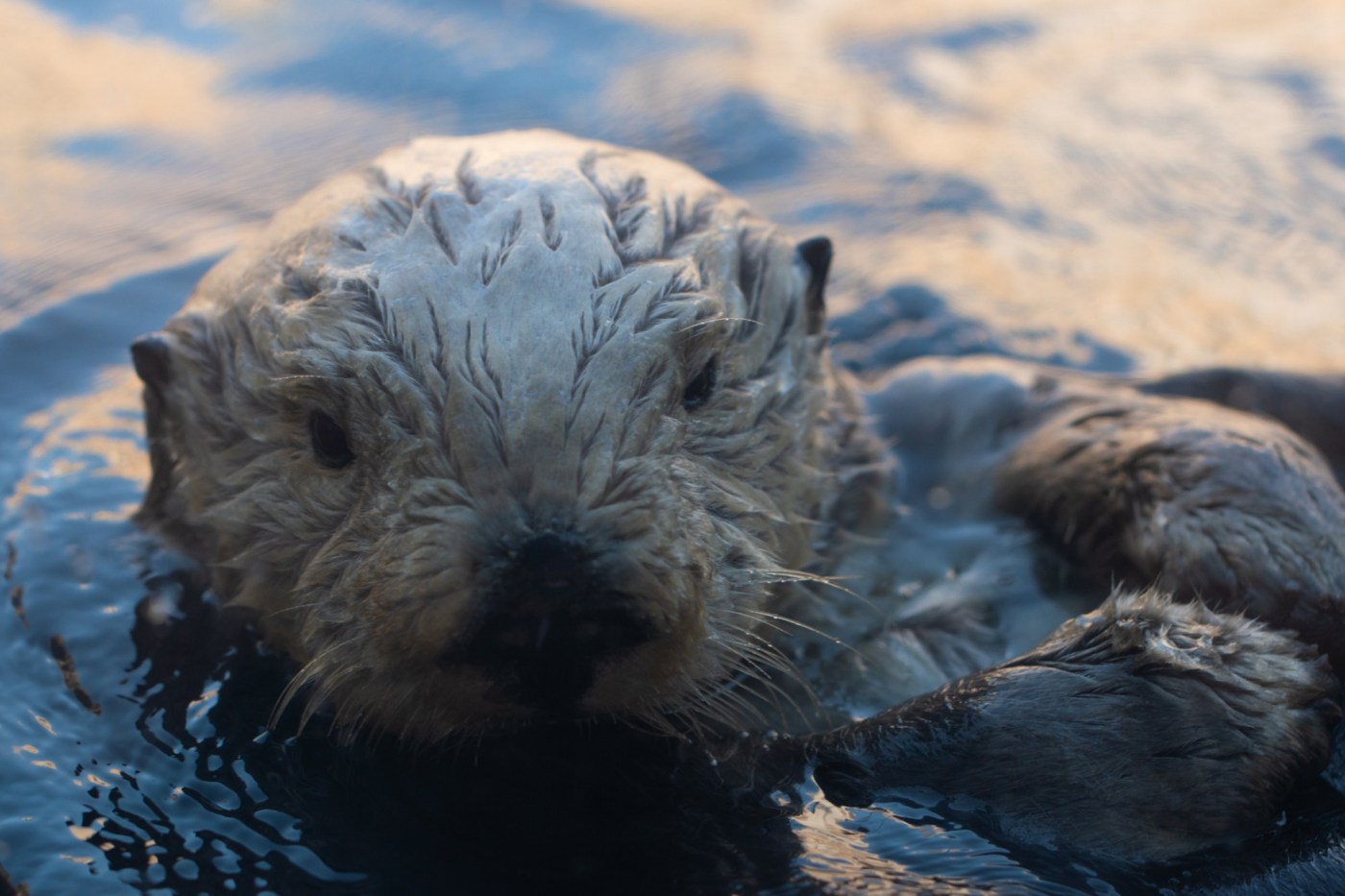MONTEREY – The Monterey Bay Aquarium’s oldest sea otter, Rosa, died after age-related health conditions were deemed to be compromising her quality of life. Rosa lived to the age of 24.
Along with being the oldest otter at the aquarium, Rosa was one of the longest-lived individuals of her species. In the wild, female sea otters live for about 15-20 years, according to the aquarium.
Staff noticed a change in her behavior and decline in her condition in the days leading up to the decision to euthanize her according to the aquarium.
“She passed away peacefully, surrounded by her caretakers,” said Monterey Bay Aquarium veterinarian Dr. Ri Chang in a press release.
Rosa was found at about four weeks old stranded on a beach in Santa Cruz County and was taken into the aquarium’s sea otter program in September 1999. She was released back into the wild in April 2000 but with reports of her climbing onto kayaks and interacting with scuba divers, officials deemed she had too much interest in humans. The U.S. Fish and Wildlife Service determined she should be removed from the wild due to the potential risk to herself and people.
Rosa, named after a character in John Steinbeck’s “Tortilla Flat,” found permanent residence at the Monterey Bay Aquarium in 2002 and played a pivotal role in the aquarium’s sea otter surrogacy program as one of the most productive surrogate mothers in the program’s history, raising 15 pups, according to the aquarium.
Related Articles
Elusive surfboard-stealing Otter 841 back in Santa Cruz, up to her old tricks
Of the 15 pups Rosa raised, at least one of the females has raised multiple offspring in the wild, contributing to the recovery of the threatened species. Selka, another one of Rosa’s pups, is currently on exhibit at the aquarium and is continuing Rosa’s legacy, acting as a surrogate mother herself.
Rosa also acted as an ambassador for her species, as she contributed to a number of research studies and contributed to the scientific body of knowledge on southern sea otters while she was in the wild. Both Monterey Bay Aquarium scientists and University of California researchers were able to collect data on Rosa’s caloric intake, core body temperature and behavior.
Throughout her residency at the Aquarium, Rosa garnered a fanbase online who watched her through livestreams of the Sea Otter Cam and, in recent years, taking part in virtual birthday celebrations that raised money for the aquarium.
After learning of Rosa’s death, people took to the internet to share condolences and the impact she had on them. The aquarium’s Instagram post sharing the news has received over a thousand comments, while other community members have taken to the aquarium’s Discord server and X (formally known as Twitter) to talk about her passing and share art they had drawn for her upcoming birthday.
Melanie Oerter, curator of marine mammals, said Rosa was one the most playful otters at the aquarium and could often be seen playing with the younger otters, even at 24 years old. While normally patient with staff, Rosa could be stubborn at times and would not be easily convinced to do something she didn’t want to do the aquarium said.
“She would often just look at us or swim away. I believe she was the one who was really training us all of these years. I certainly learned a lot from working with such an incredible otter,” said Oerter on the aquarium’s Instagram. “It has been a privilege and to say we will miss her is understated.”












